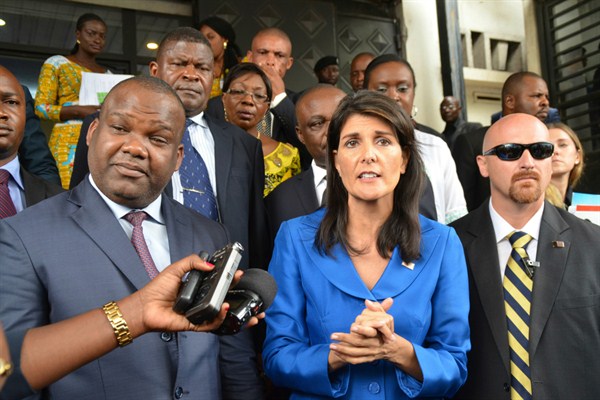During her visit to the Democratic Republic of Congo last month, Nikki Haley, the U.S ambassador to the United Nations, appeared to have a singular goal in mind: getting a firm commitment on a new deadline for the country’s long-delayed elections. “The president must say that we’re going to have elections in 2018,” she said before her meeting with President Joseph Kabila. “We will not support with funding, resources, anything, if the calendar does not specifically specify no later than 2018 for these elections to happen.”
Nine days later, Congo’s election commission announced a new timeline that seemed to align with what Haley wanted, scheduling presidential, legislative and provincial races for Dec. 23 of next year.
But while the State Department issued a statement welcoming the commission’s announcement, it hardly amounted to a significant breakthrough. To the contrary, there is still scant evidence of the political will required to organize a vote. And Kabila, for his part, has not offered any indication he’ll be ready to leave office even if a vote does happen, meaning Congo’s political crisis is far from finished.

